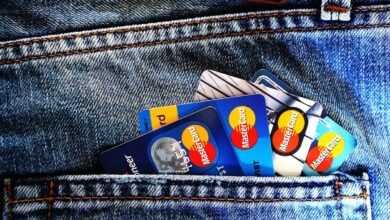
Should You Negotiate A Fixed Home Loan Interest Rate?
The prime lending rate recently jumped up another 25 basis points, totalling a 50 basis point increase over the last year, taking it from 9.00% in July 2014 to its present 9.50%.
Experts around the country are expecting this to be just the beginning of a significant upward trend, with forecasts predicting further increases of anything from 50 to 100 basis points in the next 12 months.
This is according to Mike van Alphen, National Manager for Rawson Finance, the Rawson Property Group’s bond origination division, who says for homeowners, this kind of news can be justifiably nerve-wracking as it directly affects the affordability of home loan repayments that are linked to the prime lending rate.
As a result, a lot of people are on the lookout for ways to protect themselves against these effects as far as possible, and the question asked by many is whether negotiating a fixed bond rate could be the perfect answer.
Ironically, he says fixing your bond at this point could actually be one of the worst things to do.
“The trouble with trying to fix your bond rate at the beginning of an upward cycle is that everyone knows the interest rates are climbing, including your bank. They are definitely going to take that into account when negotiating your fixed rate, and they’ll be hedging their bets to decrease their own risk, which will reflect in the numbers,” says Van Alphen.
In general, he says fixed bond rates tend to be between 1% and 3% higher than variable rates, depending on your loan status, your relationship with your bank, and the length of the cycle you choose (typically 12, 24 or 60 months).
“When interest rates are expected to climb, the banks are less likely to be offering fixed rates on the low end of the scale, so you’ll probably be looking at 2% to 3% above your variable rate at the very least.”
Based on those figures, a bond with a current variable rate of 10.50% (prime plus 1%) might, optimistically, be offered a fixed rate of around 12.50% for a 12 month period.
The prime lending rate would, therefore, have to increase by 200 basis points (2%) over those 12 months for the variable rate to equal the fixed rate by the end of the contract period, and the homeowner would have been paying the higher fixed interest rate each month for that whole period, says Van Alphen.
For the homeowner to actually save money, Van Alphen says the variable rate would have to equal or exceed the fixed rate fairly early on in the cycle, which would require a much faster and more extreme increase in the prime lending rate.
Given that banks are fairly good at predicting the onset of these kinds of dramatic increases, the chances of getting a favourable fixed rate under those circumstances are slim, he says.
Add to this the fact that the direst predictions for South Africa’s interest rates at the moment point to a 100 basis point increase over the next 12 months, and it seems unlikely that fixed rates are going to be saving anyone any money in the foreseeable future, says Van Alphen. That does not, however, mean that they have no place in the market.
[clickToTweet tweet=”When interest rates are expected to climb, banks are less likely to offer fixed rates on the low end of the scale.” quote=”When interest rates are expected to climb, banks are less likely to offer fixed rates on the low end of the scale.”]“The benefit of a fixed bond rate isn’t really about affordability, it’s about predictability,” says Van Alphen.
“It can be extremely valuable in situations where the ability to accurately budget is of the utmost importance, and we do see more fixed rates being used in the affordable housing market for that reason.”
He says some investment purchasers also choose to use a fixed bond rate for the peace of mind that comes with being able to more accurately predict their investment’s income to expense ratio.
“All things told, however, if you’re flexible on your monthly budget and don’t mind weathering the ups and downs of a variable rate, it will almost always be the most cost-effective choice for your bond, especially in economic climates like the present,” says Van Alphen.
This article “Should You Negotiate A Fixed Home Loan Interest Rate?” was issued by Rawson Property Group – http://www.rawson.co.za/






